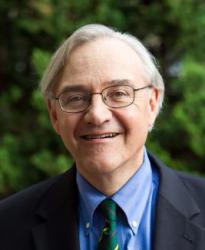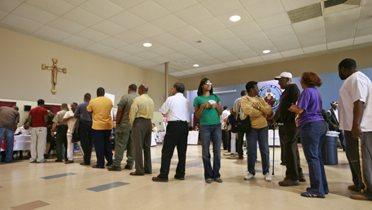Introduction
Economic convulsions have a way of changing the priorities of voters. Although concerns for their own and their families’ well-being are never far from citizens’ minds, these matters are less pressing in prosperous times. At such moments, voters feel freer to use elections as ways of registering their views on matters related to religion, culture, values and foreign policy.
But when times turn harsh, the politics of jobs, wealth, and income can overwhelm everything else. Thus did the focus of the country’s politics change radically between 1928, a classic culture war contest dominated by arguments over prohibition and presidential candidate Al Smith’s religious faith, and 1932, when the Great Depression ushered in a new political alignment and created what became Franklin D. Roosevelt’s New Deal coalition.
The Great Recession has had a similar effect in concentrating the electorate’s mind on economics. But the evidence of the 2010 election is that it has not—up to now, at least—fundamentally altered the cultural and religious contours of American political life. Religion and issues related to recent cultural conflicts, notably abortion and same-sex marriage, played a very limited role in the Republicans’ electoral victory. Overwhelmingly, voters cast their ballots on the basis of economic issues, while the religious alignments that took root well before the economic downturn remained intact. Democrats lost votes among religiously conservative constituencies, but also among religious liberals and secular voters. They did not, however, lose ground among African-Americans of various religious creeds and held their own among Latino voters. To see issues related to religious or cultural issues as central to the 2010 outcome is, we believe, a mistake.
But there is a new constellation of issues related to religion that looms as a troubling and potentially divisive element in American political life. The attack of September 11, 2001 has left the country divided in its view of Islam and Muslims, and these divisions reinforce the cleavages between Republicans and Democrats, liberals and conservatives. Americans are also sharply divided in their perceptions of President Obama’s own religious faith.
A survey conducted by the Public Religion Research Institute (PRRI) in cooperation with the Brookings Institution found that Americans split almost evenly when asked whether “the values of Islam, the Muslim religion, are at odds with American values and way of life.” The survey found that 45 percent of Americans agreed with the statement (including 20 percent who said they agreed “completely”) while 49 percent disagreed (including 22 percent who disagreed “completely”).
There was a wide variance of views across demographic and political lines. Among Americans aged 65 and over, 51 percent agreed that Muslim and American values are at odds. But only 36 percent of those under 30 said this. Among whites, 46 percent agreed, as did 44 percent of Hispanics. But only 31 percent of African-Americans saw Muslim and American values as being incompatible.
Attitudes on this issue are correlated with partisan allegiances as well: 67 percent of Republicans—but only 43 percent of independents and 30 percent of Democrats—saw Muslim and American values as being at odds. And there is a comparable ideological difference: 62 percent of conservatives saw Islamic and American values as in conflict, compared with 40 percent of moderates and only 26 percent of liberals.
Much attention has been paid to the significant minority of Americans who say that President Obama is a Muslim. Rather than pose a question rooted in a falsehood, the PRRI survey sought instead to assess how Americans saw the president’s religious faith in relation to their own convictions. The survey found that 51 percent of Americans saw the president’s religious views as different from their own, including 16 percent who saw them as “somewhat” different and 35 percent who saw them as “very different.” Only 40 percent see the president’s religious beliefs as similar to their own, including only 12 percent who saw them as “very” similar. This question sharply divides Americans along racial lines: 74 percent of African-Americans see the president’s religious views as similar to their own, compared with just 35 percent of white Americans.
We do not want to exaggerate the importance of these new religious divisions. Views on the nature of President Obama’s religious faith parallel political attitudes toward the president. Voters who are hostile to him on political grounds are likely to distance themselves from his views on other matters, including religion. In the PRRI survey, 94 percent of those who said Obama’s religious views were “very similar” to their own had a favorable view of the president. Among respondents who said his religious views were “very different” from their own, 78 percent had an unfavorable view of him.
In addition, no one can ignore the fact that Obama is the nation’s first African-American president and that at least some part of the opposition he confronts is rooted in racial sentiments. These responses no doubt condition the attitudes of some toward the president’s religious faith.
Nonetheless, this finding does point to a challenge the president faces that goes beyond the minority of Americans who see him as “a Muslim.” An American president is not only the head of government but also the head of state. As such, he is called upon to represent the nation’s shared values and broad purposes. More than most Democratic politicians, Obama has defended a role for religion in public life and sought to broker a truce in the nation’s religious conflicts. Before he became a candidate for president, he argued that “the discomfort of some progressives with any hint of religion has often prevented us from effectively addressing issues in moral terms” and said that “secularists are wrong when they ask believers to leave their religion at the door before entering into the public square.”[i] Judging from this survey, the president needs to reengage these questions in a public way.
The divisions around Islam did not appear to play any direct role in the 2010 election, dominated as it was by concerns over joblessness and arguments over the size and role of government. Yet the existence of these new religious cleavages helps explain recent flare-ups around Islam in American politics—and also the role of conservative and Republican politicians and media outlets in these episodes. One thinks, for example, of the passage of a referendum in Oklahoma barring the use of Shari’a law in the state and the controversy surrounding the construction of an Islamic cultural center a few blocks from Ground Zero. Skepticism toward Islam among older and more conservative voters suggests that there is a latent issue in American politics that has the potential of arising in unexpected ways. This places a heavy responsibility on political and religious leaders to battle religious prejudice against American Muslims.
It also suggests that American Muslims are in a situation similar to that of Catholics, who in earlier periods of our history were seen by a significant share of America’s population as representing principles at odds with equality and democracy. There may be lessons for American Muslims in the experience of the Catholic community and its ultimate success in breaking down barriers and entering the mainstream of American political life.
Finally (and related to these findings): while there is considerable overlap between the Tea Party movement and religious conservatism, there is evidence that the Tea Party may represent not so much a more libertarian alternative to the Christian Right as an embodiment of a more critical or even hostile attitude toward multiculturalism, immigration and the idea of compassionate conservatism put forward by former President George W. Bush. We offer this conclusion tentatively. The Tea Party is a diverse movement with a core commitment to a smaller federal government. Measures of its size have varied considerably. And many in the Tea Party also identify with Christian conservatism—an alliance embodied in the word “Teavangelical,” coined by the Christian Broadcasting Network’s David Brody.[ii] But to the extent that the two movements are distinctive, they are likely to split less around issues such as abortion or same-sex marriage than in their attitudes toward minority groups, immigrants and social programs for the poor. We will offer evidence for this distinction from both the PRRI survey and from exit polling in the 2010 Colorado Governor’s race, which featured the candidacy of Tom Tancredo, one of the country’s most vocal and extreme opponents of illegal immigration.
During the 2008 election, many observers noted a divide between a new America—younger, more urban and ethnically diverse, more tolerant of differences—and an older America, predominantly white and living in communities—smaller cities, towns, and rural areas—where social and cultural norms were more homogeneous and less malleable. The evidence analyzed in this report suggests, if it does not quite demonstrate, that the rise of new America unsettled the denizens of old America more deeply than was apparent in the initial reactions to Barack Obama’s election. The aftershocks from that watershed event continue to reverberate through our society.
A note on the data used in this paper: We rely here on the publicly reported network exit polls, which included a limited number of questions related to religion, and also on a survey conducted by PRRI with 1,494 Americans, including 1,194 who said they cast ballots on November 2. This survey, conducted from November 3 to November 7, was based on re-interviews with respondents to an earlier poll conducted in September whose results were released at a Brookings event on October 5. The original survey was based on 3,013 interviews. The authors of this paper played a role writing both questionnaires, though primary responsibility for organizing and carrying out the survey rested with Robert P. Jones and Dan Cox. We are deeply grateful to Robby and Dan for their many wise insights, their hard work and their warmly cooperative spirit. PRRI is producing a separate report that will summarize and analyze the core findings of the survey. We also thank the Ford Foundation for its financial support, and in particular Sheila Davaney, our program officer at Ford, for her encouragement, superb advice, enthusiasm for this work, and for the freedom to carry it out.
[i] Obama, Barack, “Call to Renewal Keynote Address.” June 28, 2006. Washington, DC.
[ii] Brody, David, The Brody File. Christian Broadcasting Network. November 2, 2010.





